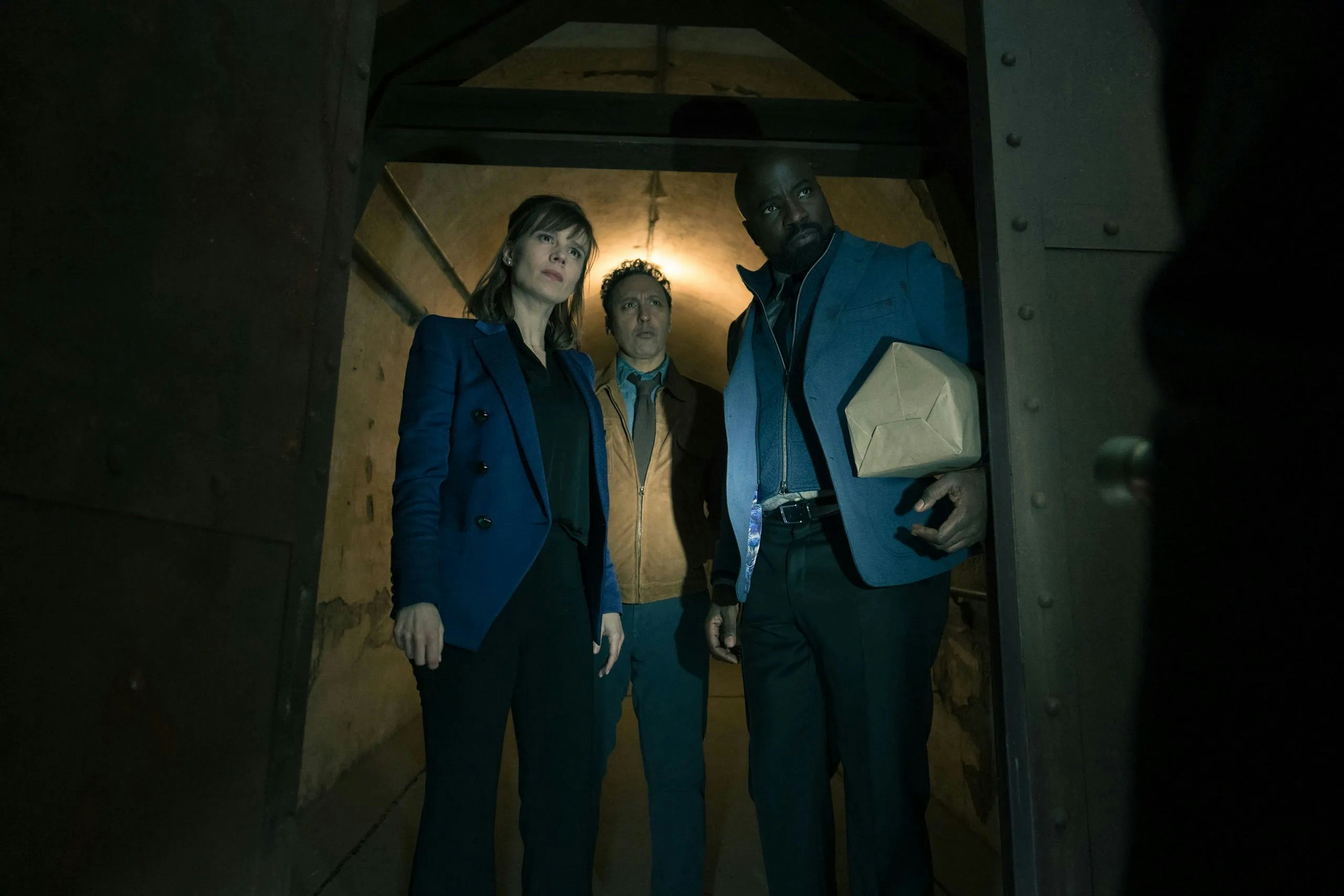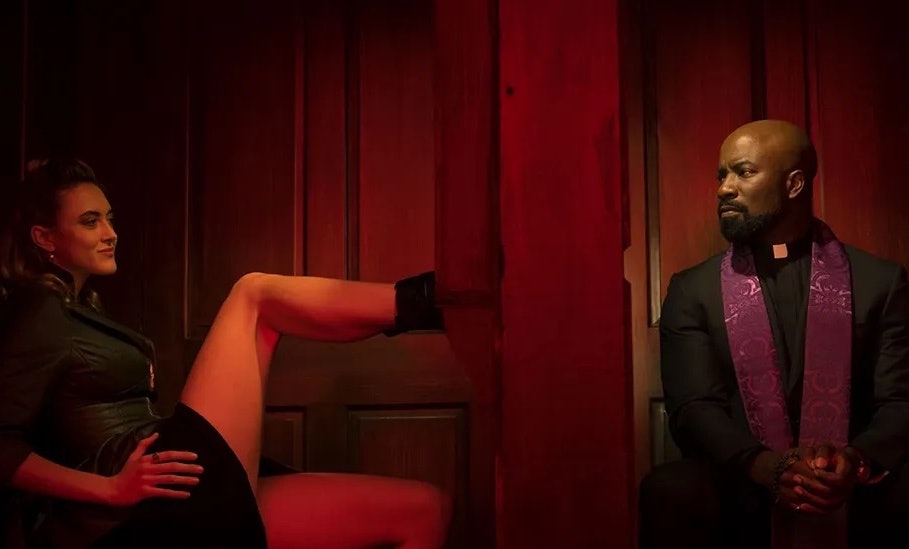
The end is nigh for Evil. As the Paramount+ show returns for its fourth and final season, it’s as mystifying and magnetic as it has been since its 2019 debut. It is a relief to say its two years in limbo from our streaming devices hasn’t eroded its grime as an X-Files-meets-Exorcist procedural and a saw-tooth satire of modern living. But while Evil is back in business, it’s also business as usual. After five years, Evil still revels in the ambiguous spaces where neither science nor faith offer satisfying answers to haunting questions. It was sinful fun in the beginning when pragmatic psychologist and mother of four Kristen Bouchard (Katja Herbers) stared into the yellow eyes of a wisecracking night terror and fought back with her intellectual prowess. (Where is George these days, anyway?) But now as the patina of time on Evil is hard to ignore – Kristen’s gaggle of daughters look overgrown in their school uniforms – the show’s deployment of its signature tactics are less effective. Worse, it’s less provoking.
Evil can still raise scares. Laughs, too. But the emotional and intellectual battles it wages against the otherworldly has hard boundaries Evil may not have the spirit, much less the budget, to see through. Knowledge that the end is in store is faint salvation from the treadmill its first few episodes seem to run on.
Evil Season 4 picks up directly from the cliffhanger ending of two years ago, with Kristen learning her eggs are being used to birth the Antichrist with nemesis and Hell’s bureaucrat Leland (Michael Emerson, as slimy as ever). Occult classics like The Omen and Rosemary’s Baby are obvious touchstones here, but Evil delights in adding new stank in exploring the divine comedy of parenthood. You think the circles of Hell are bad? They ain’t nothing to a screaming infant, and Evil relishes in spewing vomit soup on Leland.
Meanwhile, the weekly cases taken by Team Evil, still made up of Kristen, hunky priest David (Mike Colter), and ex-Muslim tech wiz Ben (Aasif Mandvi) have a scientific or technological bent. In the premiere, our heroes crawl through miles of a particle accelerator that may house a monster. A week later, they deal with Boston Dynamics-like drone dogs with sinister programming. Only the first four episodes of Season 4 were made available for review, but I anticipate more topical subjects like A.I. soon. But it’s apparent at this point that Evil’s interrogation of science as an enabler of man’s darker bases, and commentaries on the fallacy of value neutrality, isn’t as pointed as devout Evil fans know this show is historically capable of being.
However short Evil falls in the philosophical department, it soars to the heavens with its characters. All three of Evil’s primary point-of-view leads continue to be challenged at their core, an invitation for audiences to find new dimensions in already textured individuals. Colter’s David gets the shorter end of the stick of them all — he is, and I’m not kidding, being groomed into a psychic agent for the Church — but it’s all compulsively watchable. The juiciest among them is Ben, whose recurring encounters with an Islamic djinn provide some of this season’s most bone-chilling set pieces.
It’s in Evil’s characters and their holy chemistry that rests the show’s best weapon, the lure that will hook viewers deep until the finale’s credits roll. There’s a beautiful moment this season where, during a long day’s drive, the three pull over to the side of the road for a group hug, sharing warmth and understanding after they expose their raw nerves. Their intimacy feels like a cozy knit blanket in contrast to their brutal upstate New York surroundings. (No matter when it actually airs, Evil is forever an autumnal series.) The scene is a distilled summary of all that makes Evil an unlikely comfort watch: No matter how hostile their world gets, and how long the days drag, you believe these characters always have each other.

What will Evil look like in the end, I wonder? As we near the end I’m reminded of Sleepy Hollow, the once-promising police procedural that mixed Americana folklore with Abrahamic mythology. Its endgame was the Biblical apocalypse, too. But Sleepy Hollow tempted fate and struggled in its pivot to a full-sized action fantasy. Broadcast TV’s power couple Robert and Michelle King, the team behind Evil, have proven themselves more competent in comparison, keenly aware their show is at its best when it’s a taut and caustic psychological thriller. But Sleepy Hollow stays a cautionary tale against Evil’s worser desires to go whole hog and unleash hell. While Evil’s numerous costumed demons are all nice to look at — and an excellent portfolio showcase for its artisans to get on an Elden Ring adaptation — I question their growing prominence, and the show Evil would turn into if its fate wasn’t already sealed. For Evil, the end might be its saving grace.







